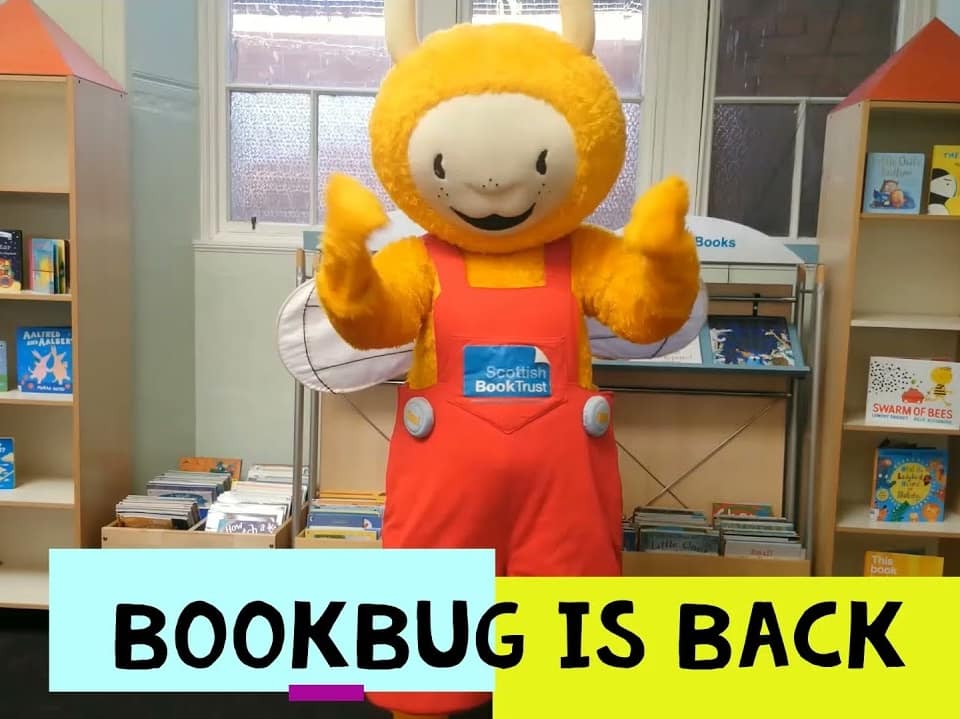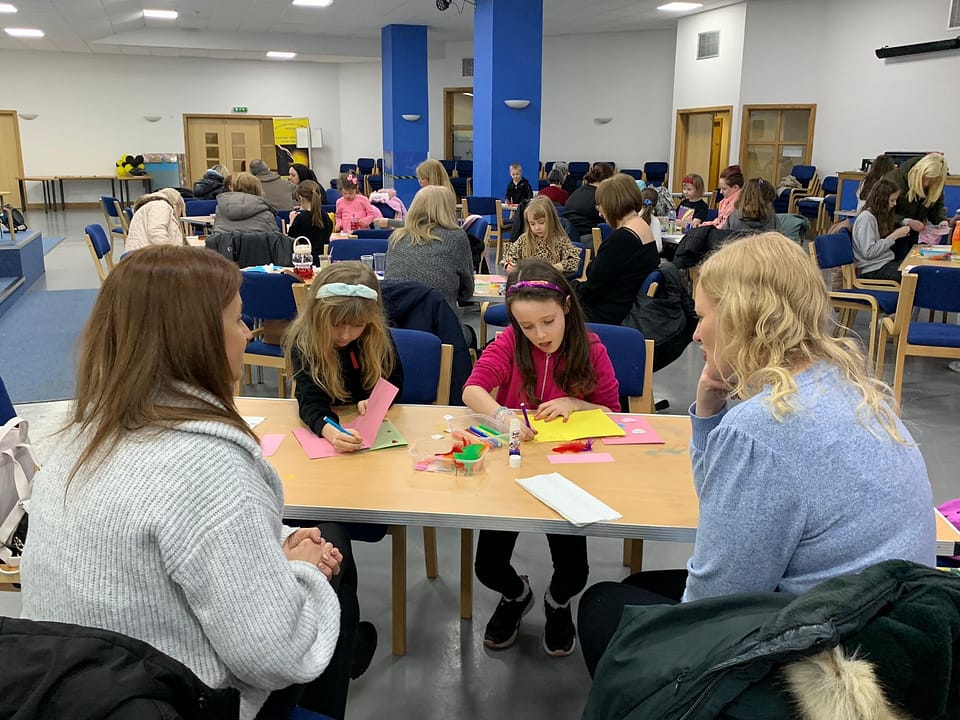
Struggling to Find a Healthy Weight After Lockdown? 12 Strategies to Shed the Pounds
25 May 2022
Free Summer Cornerstone Movie Day Treats For Children And Adults: Book Places Now
16 June 2022Improve And Nurture Bonding With Your Child: Top Tips From Cumbernauld Family Hub
This week, Cumbernauld Family Hub is taking a closer look at how parents can improve bonding with their children with a view to developing and nurturing strong healthy parent-child relationships.
Do I spend enough time with my child? Am I meeting all of their needs and doing the right kind of activities with them? Do they enjoy my company? Have I got my approach right? These are questions which almost every parent asks themselves at one stage or another, particularly in the formative years.
Every parent knows that it can be hard to find the right balance in these areas, and it can be difficult to manufacture quality time alone with them. This is especially so for parents with more than one child. After all, if you are nursing a baby then finding time to escape one on one with an older child can be extremely challenging.
In this modern emotional world, an increasingly common term to define this bonding or connectedness is ‘attunement’. Attunement means that you are attempting to respond to your child’s emotional needs, resulting in the child’s sense of being understood and valued. The capability to attune differs on the personality and temperament of children, and how easy or difficult it is for us to relate to them, given our own individual personality traits.
Parenting advice opens up a world of challenges, like the stresses of work, financial worry, marital tension and conflict, the determination for success, modern day stresses on our kids, and mixed families due to divorce and remarriage. There are more forces than ever that are tearing at relationships with children.
So, how can you strengthen the bond and connect with your child in a way that promotes emotional health? When we consider an attachment perspective, it all starts with safety in the home with primary caretakers.
Below are seven simple concepts you can use to help promote bonding and secure relationship patterns with your child.
===================================================================
TOP TIPS FROM CUMBERNAULD FAMILY HUB TO IMPROVE PARENT-CHILD BONDING
Ensure You Spend Enough Time With Your Child
Most parents make a distinction between quality time and quantity time. What this can translate into is ‘I don’t have much time for my children, but when I do, I want us to have fun together’.
To actually have quality time with a child, it’s key for the parent to spend a lot of ordinary time with them. This time is the kind that develops trust, learns their love language, and to truly understand their ways. Quality moments require many hours of little moments. Things like talking about your child’s day, having regular conversations with them and reading and telling stories are all important. A child needs both high quality and high quantity time. They need you in healthy doses!
Acknowledge Your Child’s Nature and Be Accepting and Supportive
Each child is born with a certain temperament which is developed by an early age. Most children are classified into one of four categories: easy-going, challenging, ‘slow-to-warm-up kids’ and mixed temperament kids. What really matters is how well parents adjust to their child’s personality. Accepting a child for who they are helps them to feel secure and okay with their personality and identity.
Of course, that does not mean to allow this as an excuse for a child to act or do as they please without installing discipline and good moral values. It’s about fostering the child’s development in such a way that the parent has an understanding of what predispositions they may lean towards and nurturing them in the right way with this in mind.
Don’t Be Afraid Of Healthy Physical Contact
This can mean anything from high-fives and wrestling matches to strokes of the hair, squeezes of the hands, and goodnight kisses. Those with babies should hold them gently and lovingly, not just functionally.
Within the safety and warmth of their arms, children learn that relationships are nurturing and secure. This can be challenging if as a parent you have an avoidant attachment style. Sometimes a parent can have an ambivalent attachment style, i.e. the need to monitor how much the child is touched. These are things to watch out for.
It’s important for the parent to pay attention to a child’s responses to touch and adjust their behaviour appropriately. Over time, you can get to know what type of touch feels good to your child and then respond in that way every chance you get. This may change as they get older, so don’t take it personally if they are not as receptive, just be willing to give affirming touch when you can.
Encourage Your Child to Learn Life Values
This includes teaching your child the significant lesson of learning how to handle negative emotions by not ignoring them or pushing them aside. Some parents use messages such as ‘just get over it’ and ‘you shouldn’t feel that way’. This can be harming and ineffective, especially as they get older.
Instead, you will need to set limits on how your child behaves when they are upset, and teach them ways to manage feelings and solve problems. When you do this, you create a secure base from which the child can deal with negative emotions. Also, keep in mind that one of the best ways to teach a child is by having them see their parent live out the principles and guidelines shared with them. Remember that they are constantly watching and learning, so lead by example!
Nurture Your Child’s Resilience and Sense of Security
When we stick to something and remain persistent in the face of stress, this is tenacity. Tenacity helps create a resilient family structure, one that generates warmth with clear limits and realistic and constructive boundaries.
When a parent maintains commitment to setting healthy boundaries and fostering open communication, this can help create a healthy and stable environment. It also lets the child know you are not going to give up on them even in challenging times, which brings safety and security.
Recognise Where Things Are Not Right and Reconnect
There is no perfect parenting manual and certainly no right way to be a stellar parent. If you have realised that perhaps have not been connecting with your child as you would like over a period of time, remember it’s never too late to start. It’s not a weakness to admit to yourself that you could have done some things differently as a parent and can improve. In actual fact, it can be a real strength to recognise that within yourself. Reconnecting over time is the way forward in such circumstances.
When trying to reconnect with a child, there can be several hurdles to overcome, so it’s important for parents to put on their patience hat and have self-awareness of their own personal struggles that can be triggered in the interactions with their child. Parents can once again find joy in their life after reconnecting with their child, and observing the growth and development of them in the family environment.
Utilise Key Resources to Strengthen Your Parent-Child Bond
Parents living in Cumbernauld can tap into resources in the public, voluntary and private sectors to enhance and strengthen the bond they have with their child. However, it can often be difficult to find free and specifically-targeted places and activities to promote parent-child bonding.
One such resource which can be accessed free of charge within Cumbernauld town centre is Cumbernauld Family Hub. Delivered by Cornerstone House Centre and supported by The National Lottery Community Fund, Cumbernauld Family Hub provides a range of regular development activities, resources, training and events to help local families bond and grow stronger.
Family Hub activities are planned to be informal, practical and interrelated, making the learning fun and interactive. In particular, services are tailored to benefit those experiencing difficulties as a result of factors such as poverty, housing problems, relationship issues, lack of educational attainment and unemployment. Examples of free activities currently provided include Bookbug, Dolly Parton’s Imagination Library, Living Life to the Full and school holiday Movie Days.
===================================================================
For more information about benefiting from Cumbernauld Family Hub, please contact Cornerstone House Centre on 01236 739220 or email familyhub@cornerstone-house.org.uk.





